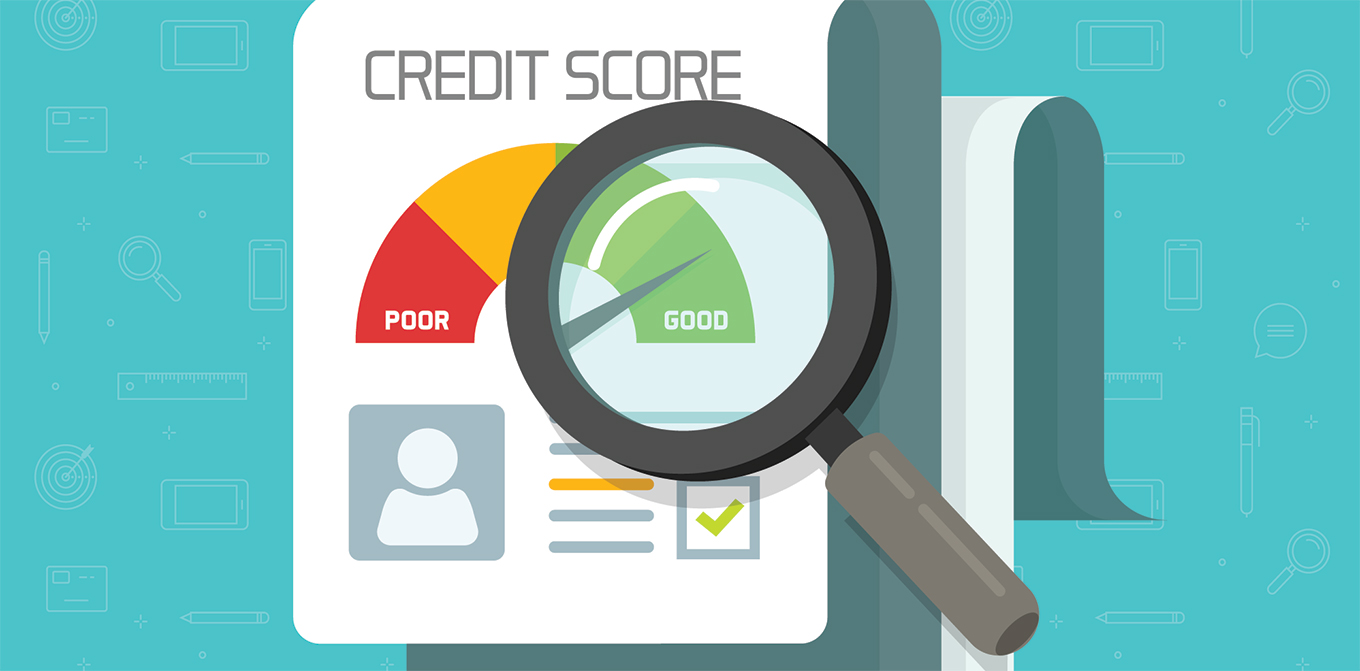Why do I have multiple credit scores?
Whether you're applying for a mortgage, personal loan, or credit card, the creditor will likely review your credit report and a credit score as part of the application process. A higher credit score could make getting approved easier and lead to a lower interest rate—a win-win.
However, you don't have a single credit score. In fact, lenders can choose from different types of credit scores to help them analyze applications.
Fortunately, you don't need to know all the details to get a good loan. Once you understand a few credit scoring basics you can take steps to improve all your credit scores.
What is a credit score?
People sometimes talk about credit scores as financial grades, which is right, in a sense. But it's also important to remember why companies use and create credit scores.
Rather than having to look through each applicants' credit report, creditors can use a credit score to help them quickly assess risk. But creditors might not have the expertise or resources to create their own credit scores. Instead, they rely on companies that specialize in credit scoring to develop credit scoring models—the algorithm that determines a score.
Many scoring models are specifically built to determine the likelihood that someone will miss a payment by 90 or more days within the next 24 months. They do this by analyzing a consumer credit report; from Equifax, Experian, or TransUnion.
When a creditor requests a copy of your credit report, it can also ask for a credit score based on that report. Often, the score can range from 300 to 850, and a higher score is better because it means the person is less likely to miss a payment.
Knowing the basic framework can make a few things clear:
- Credit scoring models determine a score based on your credit report at a specific time. It's more like a snapshot than an ongoing tracker.
- A credit score can vary depending on which credit report it analyzes. It's common for there to be differences in your credit reports, which can lead to different scores.
- Creditors can request different types of credit scores with your credit report.
In short, you don't have “a" credit score. But you may have a credit report, which can be scored by many different scoring models.
How many credit scores are there?
FICO and VantageScore are the two main companies that create credit scores for lenders.
FICO
FICO was one of the first credit scoring companies, and it has many types of FICO Scores. For example, FICO creates base FICO Scores that any type of lender can use. It also has industry-specific FICO Scores for auto lenders and card issuers—these scores range from 250 to 900.
For both the base and industry-specific scores, FICO develops a slightly different model to work with the databases at each of the major credit bureaus. That means there are three different “FICO Score 8" models (one each for Equifax, Experian, and TransUnion). It also periodically releases a new version of its base and industry-specific scores—FICO 10 is the latest model.
VantageScore
The VantageScore credit scoring models are slightly different. Although your score depends on data from one of your credit reports, an identical "tri-bureau" model can score reports from all three credit bureaus. There are currently four versions of the VantageScore credit score, VantageScore 1.0 through 4.0.
Large financial institutions may also create their own custom credit scores. These may incorporate a FICO Score or VantageScore credit scores as a factor within the custom score. They may also include information that isn't found on your credit report, such as your history with the company.
Which credit score is most important?
Lenders can choose which credit score to use when evaluating your application, which means there's no all-important credit scoring model to check or track. However, there is a silver lining that can make managing your credit easier.
While credit scoring models might use different factors or weighting, they're often analyzing the same underlying data to try and determine the same outcome. As a result, even though you may have dozens of different credit scores, they all tend to move up or down together.
In general, you can improve your credit scores
- Paying bills on time
- Only using a small portion of your credit cards' credit limits
- Building a long credit history
- Having a mix of revolving and installment accounts (e.g., credit cards and loans)
In some situations, such as in the months leading up to applying for a mortgage, you might want to take a deep dive into credit scores and figure the best options based on your specific situation. But if you've established a long credit history with on-time payments, you may already have an excellent credit score that helps you qualify for the best rates.
Check and monitor your credit reports
Focusing on your credit reports might make more sense than a credit score. After all, the credit reports have the underlying data that will determine your scores.
If you haven't done so recently, consider reviewing all three of your credit reports for errors. You can request a free copy from each credit bureau at least once every 12 months on AnnualCreditReport.com. Some credit bureaus and third-party sites will also give you free copies of your reports more often. If you spot an error, you can file a dispute for free directly with the credit bureau, or with the company that sent the erroneous information to the bureau.
Monitoring your credit reports for changes can also be a good idea. Monitoring services may send you an alert if there's a significant change in your report, which could impact your credit scores.
An unexpected change, such as an account you didn't apply for appearing in your report, could also be an indication of identity fraud. You may then be able to quickly act to close the account and have it removed from your report before too much damage is done.




